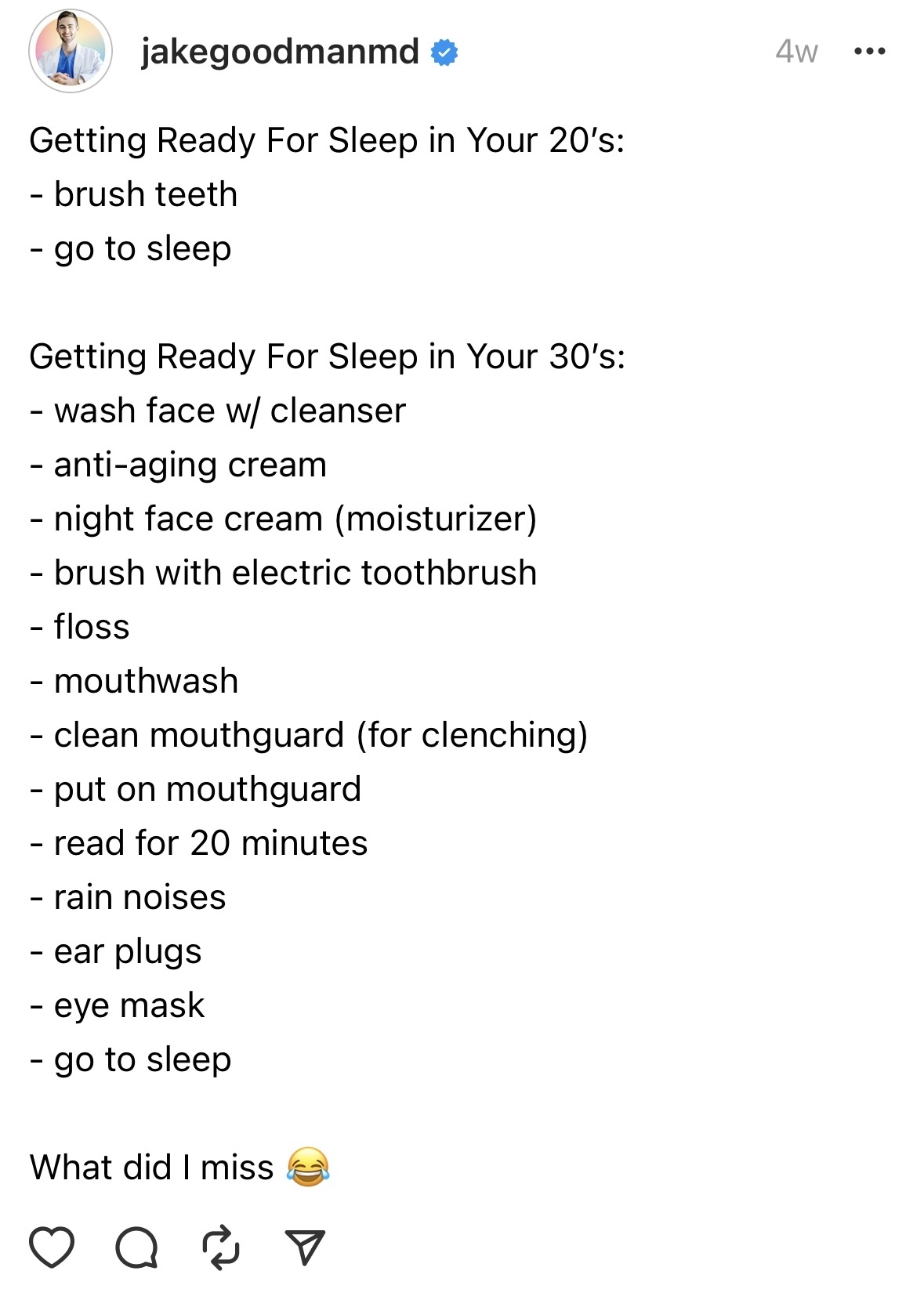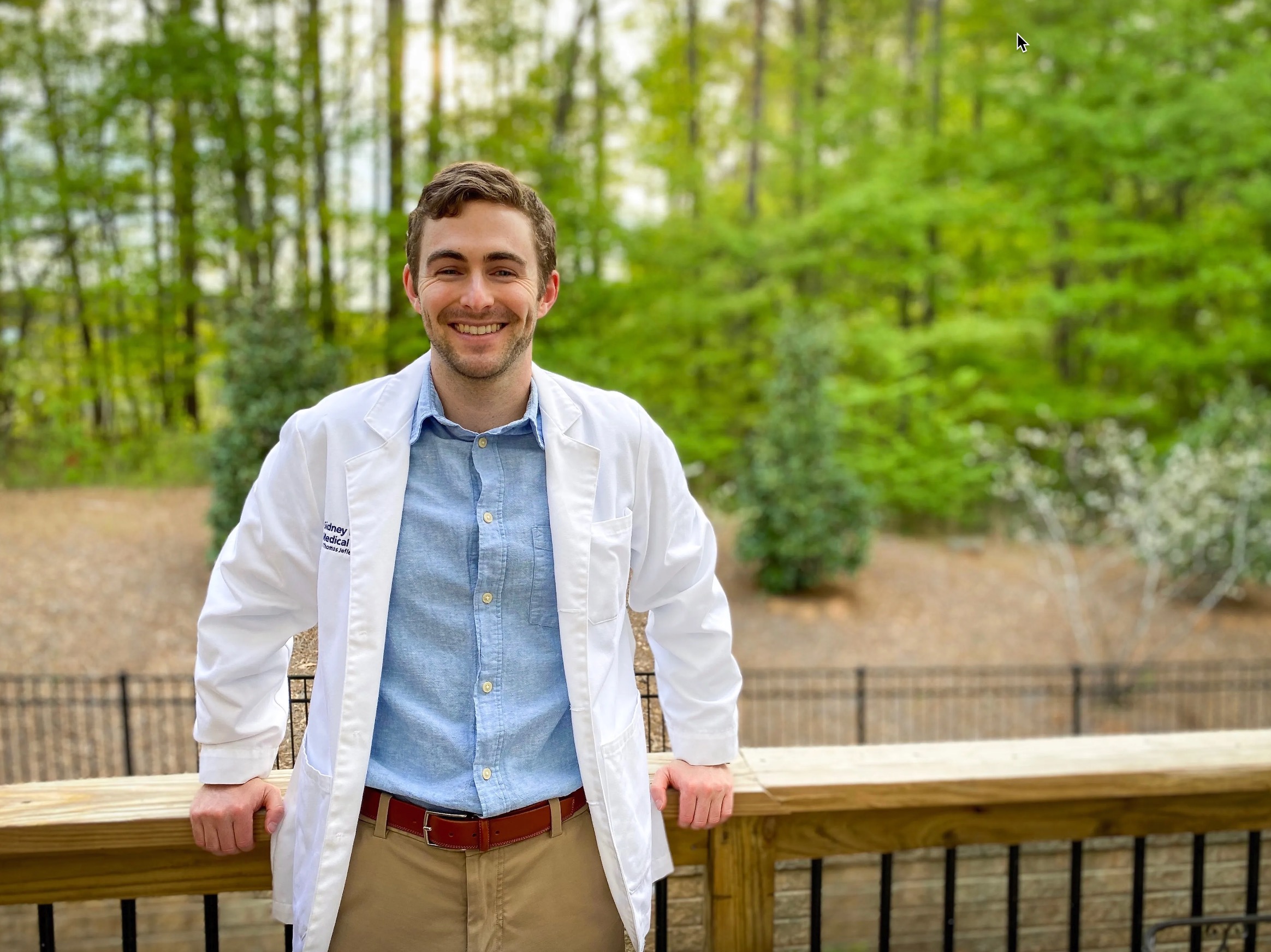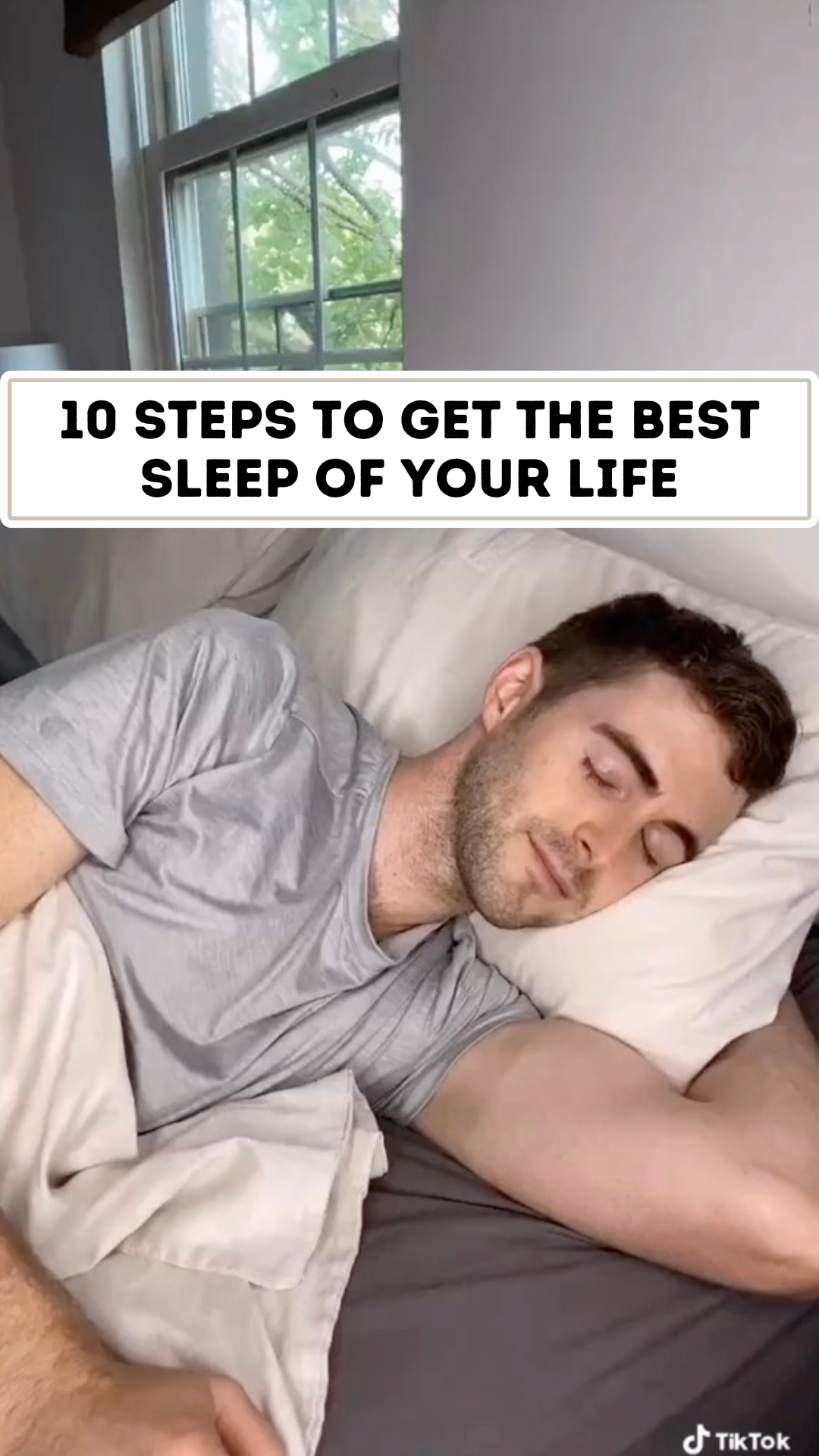10 Steps for the Best Sleep of Your Life
Hi friends!
What if I told you there was a medication that has been scientifically proven to improve your mood, reduce anxiety, and enhance memory? What if I told you that this medication also strengthens your immune system, lowers your risks of heart disease, and helps support a healthy weight? Oh yeah, and what if I told you it was completely free? You interested?
The medication is called… (drum roll please…) SLEEP. And today, we are going to talk about how to get the best sleep of your life.
Happy Sunday! This weekend, I’m visiting my parents and spending some quality fam time as well as prioritizing my sleep. Speaking of sleep, I was doing my pre-sleep night routine last month and realized how much things have changed since I hit my 30’s…
As a mental health doctor, I talk with my patients every day about sleep. I believe wholeheartedly that one of the best things you can do for your mental health is to get consistent, quality sleep. So let’s jump in.
10 Steps For The Best Sleep of Your Life:
- Create a CONSISTENT Sleep Schedule
As much as possible, you should go to bed and wake up around the same time every night, even on weekends. This helps regulate your body’s circadian rhythm (your internal sleep/wake clock).
- Create a pre-sleep ritual
It’s critical to find activities that you can do before bed to tell your brain, “Hey! It’s time to wind down!” Here’s mine:
- Warm shower & face creams
- Read a fantasy book (right now – The Dark Tower by Stephen King)
- Turn on rain noise (calms me down) & put on eye mask & earplugs
- Build a sleep cave
Your circadian rhythm is largely regulated by a pea-sized area of your brain called the pineal gland. The pineal gland only knows two things: (1) dark, (2) light. Ensure your bedroom is conducive to DARK by using heavy curtains (blackout if possible), or an eye mask
- Stay off your phone
I know how hard this is. I know. I struggle with this one. But our phones are designed to keep us awake with constant dopamine triggers, not to mention the blue light emitted which interferes with melatonin production. If possible, avoid electronic devices like phones, tablets, TVs, or computers at least 30 minutes before bedtime
- Avoid caffeine
Caffeine is fine. Caffeine before bed is not fine. My rule of thumb is no caffeine after 2pm. Some doctors will say noon. Caffeine has a half life of about 5 hours, which means it takes 5 hours for half of the substance to be removed from your body. If you are drinking coffee at dinner time, that caffeine is still flowing through your bloodstream when it’s time for sleep. No Bueno.
- Regular Exercise
Engage in regular physical activity, but try to finish your workout at least a few hours before bedtime. Exercise promotes better sleep, but intense activity too close to bedtime may have the opposite effect.
- Limit Naps
Naps can be great. I’m not saying you can’t ever nap. If you are able to nap AND get good sleep, move on to the next bullet point. HOWEVER, if you are struggling to get good sleep at night AND you are napping during the day, I’d recommend cutting out the naps.
- Be Mindful of Alcohol
While alcohol may initially make you feel drowsy, it can disrupt sleep cycles. One glass of wine is probably fine. But the best sleep is always going to be without alcohol in my opinion
- Manage Stress
Practice stress-reducing techniques such as deep breathing, meditation, or 5 minutes of yoga to relax your mind and body before bedtime.
- Still can’t sleep? Get up!
Has it been more than 30 minutes and you still can’t sleep. It’s okay. This happens. I know it sounds counter-intuitive, but get up, get out of bed & go do something for 5 minutes (something boring, monotonous, non-stimulating like washing a few dishes), then return to bed. Repeat until you fall asleep.
That’s it! I hope these 10 steps can help you get your best sleep.
P.S. Need a sleep mask for under $20? Here’s my favorite:
Disclaimer: These emails do not assume a doctor-patient relationship and my information is not intended to substitute for medical advice. I offer science-backed educational information aimed at empowering you to live your best life. Always consult your personal doctor before starting any treatment.
This Week’s Sources:
https://www.ucsfhealth.org/education/improve-your-sleep-hygiene
Jake Goodman MD, MBA
Psychiatry Resident Physician

You Are Not Alone
For you or a loved one to be diagnosed with a brain or mental health-related illness or disorder is overwhelming, and leads to a quest for support and answers to important questions. UBA has built a safe, caring and compassionate community for you to share your journey, connect with others in similar situations, learn about breakthroughs, and to simply find comfort.

Make a Donation, Make a Difference
We have a close relationship with researchers working on an array of brain and mental health-related issues and disorders. We keep abreast with cutting-edge research projects and fund those with the greatest insight and promise. Please donate generously today; help make a difference for your loved ones, now and in their future.
The United Brain Association – No Mind Left Behind





